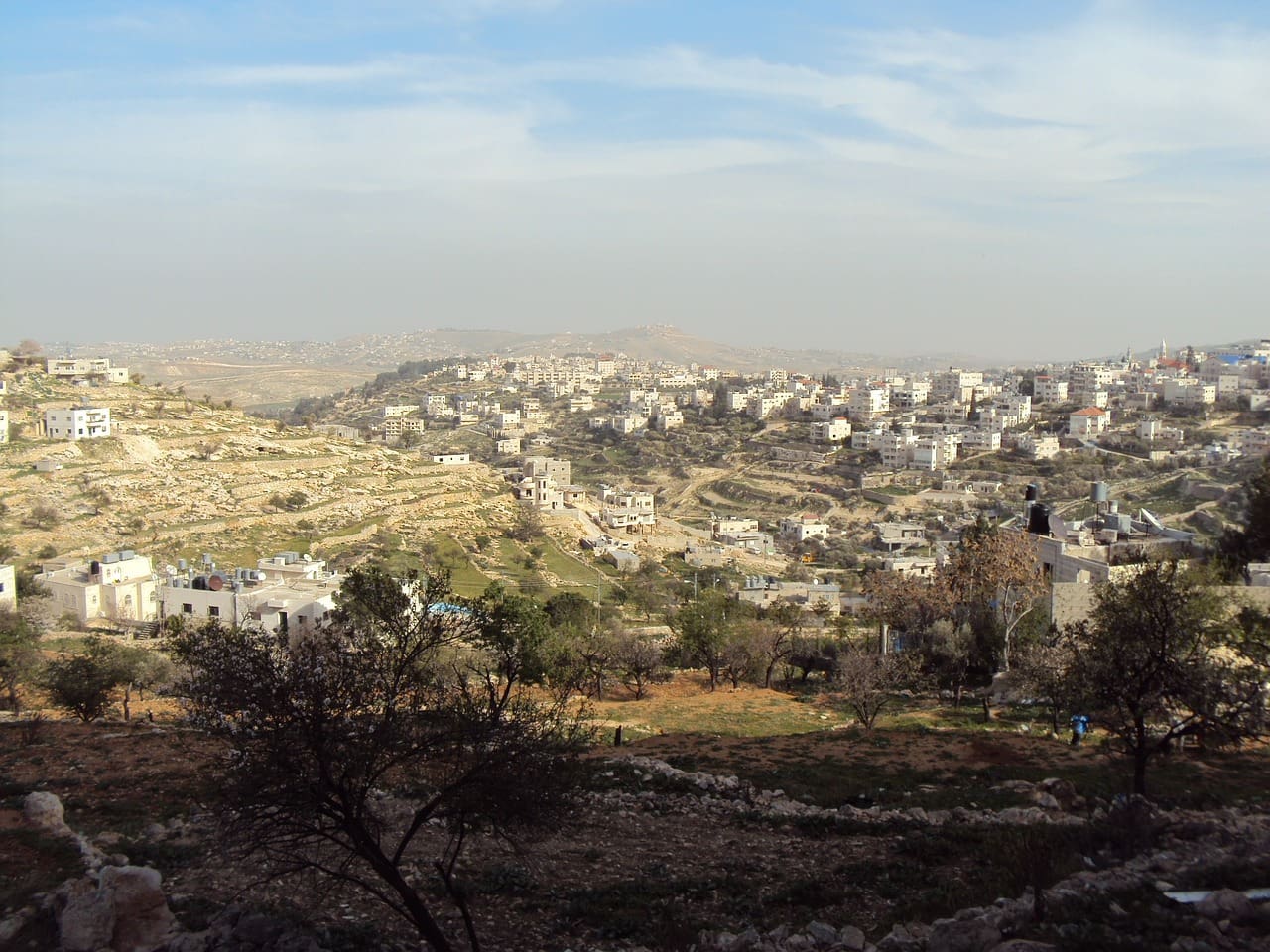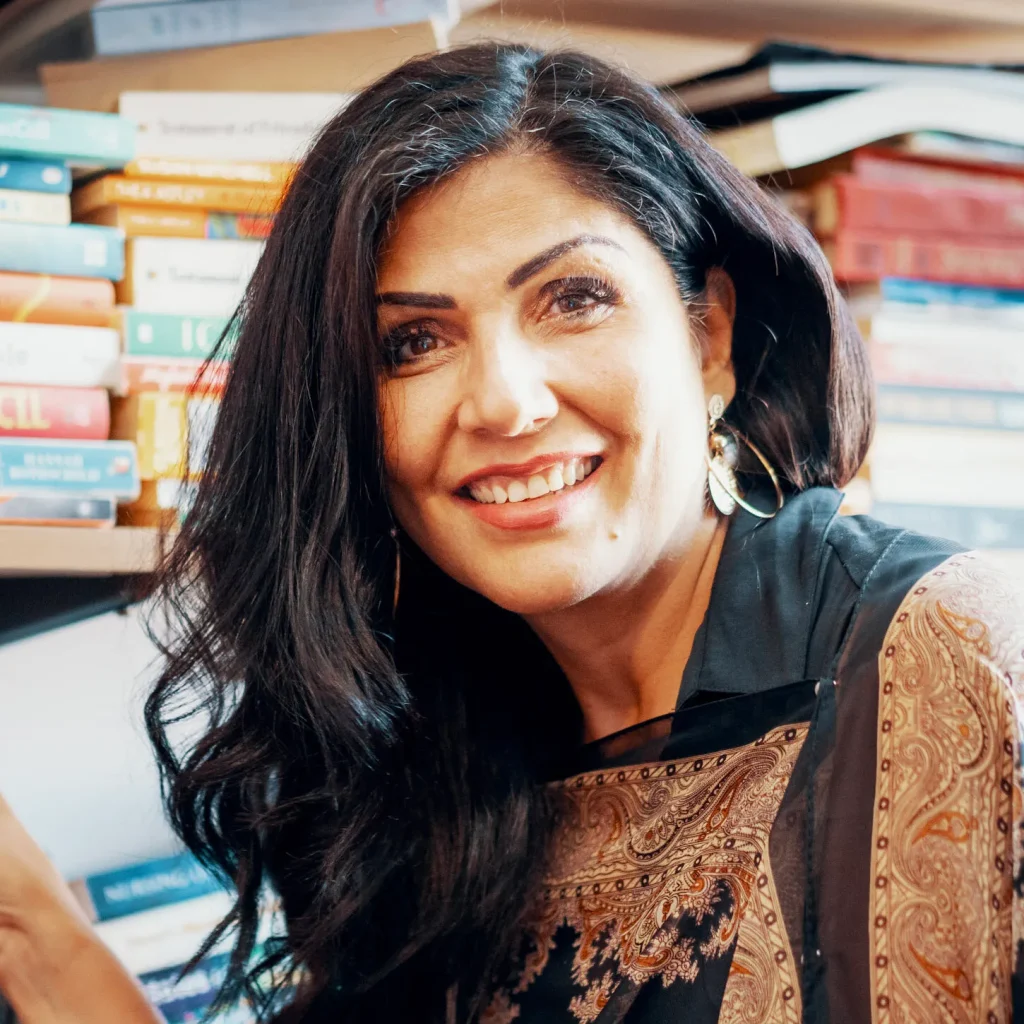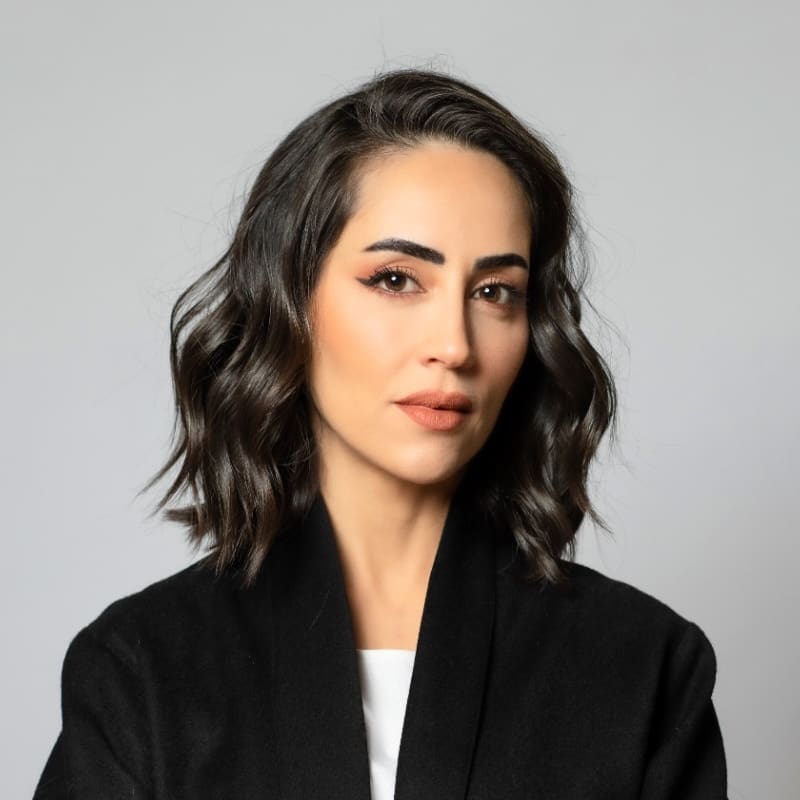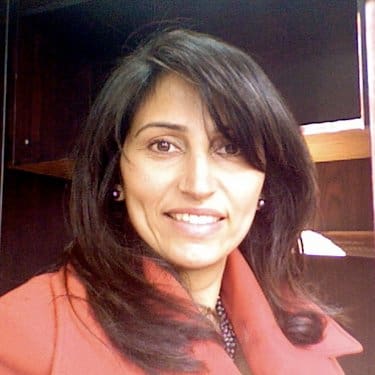
Over the past few weeks, Al-Shabaka Policy Advisors Bashir Abu Manneh, Ali Abunimah, Naseer Aruri, Diana Buttu, Mary Nazzal-Batayneh, Mouin Rabbani and Samah Sabawi commented on Nadia Hijab’s policy brief, What if Peace Talks “Succeed?” Their comments are published below. Several key themes emerged, as demonstrated by these brief excerpts from each commentary.
Bashir Abu-Manneh: Participatory, self-organized mobilization is the Palestinian people’s greatest challenge today. It is also the best possible resource for Palestinian liberation.
Mary Nazzal-Batayneh: [This tough issue] needs practical discussion if we are going to turn a recommendation to reunify the body politic into action.
Samah Sabawi: While the BDS National Committee has reached out to international solidarity with great success, it needs to also have a program targeted specifically at engaging Palestinian communities in the Diaspora.
Mouin Rabbani: While [BDS and the Palestinian civil society call] can certainly play a role, Palestinian society remains one in which the political movements call the shots, and in which institutions set the agenda. It is precisely because of the weakness of these movements and institutions that the struggle for Palestinian self-determination is regressing rather than progressing.
Ali Abunimah: Unless we respond to this [state of affairs] forcefully I predict it will not be long before [Israeli Foreign Minister Avigdor] Lieberman’s vile ideas are adopted into the mainstream as “reasonable compromises.” This process of taking extreme anti-Palestinian ideas and then sanitizing them is precisely how we have reached the sorry point we are at.
Naseer Aruri: Whatever analysis is applied, one central question comes up: where is al-Jabha al-Dakhiliyya (the Domestic Front)?
Diana Buttu: Given that the PLO cannot fully assert that it represents all Palestinians, it should be examined whether the PLO can sign an “end of conflict” clause as Israel continues to demand.
Bashir Abu-Manneh: Self-Determination Requires Democracy
Needless to say, I’m against these talks (as they are a form of Palestinian submission) and believe that a strategy for Palestinian liberation (as put forward in the Prisoners’ Document of June 2006) is the best response to Israel’s colonialism. But let us assume, for argument’s sake, that we wake up next year as Obama is welcoming a new Palestinian member in the UN. What should advocates of the Palestinian cause do then?
What Palestinian advocates argue against and worry about is PA monopolization of power by illegitimate and unelected representatives. The main Palestinian problem for the last few years has been both a Western and internal Palestinian attack, boycott, and brutal repression of a freely and fairly elected democratic government. Even within the severely constricted frame of the Oslo regime, occupied Palestinians did participate in elections and did freely choose Hamas. They were, also, denied their democratic choice. So it seems to me that a central part of the response to the (again) unlikely scenario of a successful peace deal is to offer the deal up for a referendum, i.e. to allow Palestinians to practice their right of self-determination and to decide whether they accept the deal or not. The PA elite will most probably go for a referendum in the occupied Palestinian territories only (maybe even in the West Bank only).
In response, what advocates of the Palestinian cause could insist on (if major parties decide to participate in the referendum) is that the right of self-determination means that ALL Palestinians (wherever they happen to reside) be allowed to vote on a possible deal. This is the best way to safeguard Palestinian rights – without fetishizing them or assuming that they are carved in stone. The right of self-determination doesn’t happen in a vacuum: it requires Palestinian democracy, as practiced within the limits of international laws and universal norms. Self-determination of an oppressed people can only mean participatory democracy in action.
I say all this because I believe that this is the best time to insist on Palestinian democracy, and the best time to call for a proliferation of grass-root Palestinian organizing around the world. The problem with the PLO has always been a lack of democracy and a lack of popular accountability. The response to its historic failure should be to safeguard the one value it consistently undermined: democracy. This doesn’t just refer to national politics, but to all forms of Palestinian organizing as well. There’s no way to democracy and self-determination through undemocratic means. This is the best way to ensure that Palestinian refugee voices are as equally represented as 1967 and 1948 Palestinians. Participatory, self-organized mobilization is the Palestinian people’s greatest challenge today. It is also the best possible resource for Palestinian liberation.
Mary Nazzal Batayneh: Tackling the Practical Realities
Two quick remarks regarding unifying the body politic:
- There is an urgent need for us to help Palestinians in the Occupied Palestinian Territories (OPT) stay on their land, especially in East Jerusalem. Recently, among Jerusalemites, I have witnessed an overall feeling of being alone, being unsupported, and of not really having an incentive to stay steadfast. Some Palestinians are supporting projects to rejuvenate Palestinian Jerusalem, help employ Jerusalemites in Palestinian businesses, and so on. Much more must be done.
- Palestinians in exile must remain in physical contact with the land. Yet there are some obstacles that prevent this from happening, even if you live in neighboring Jordan. For example, it is almost impossible for Palestinian-Jordanians to get a visa to go to the OPT. Another obstacle is the anti-normalization movement – which I do not usually take issue with at all – who are publicly critical of any Palestinian-Jordanian who chooses to visit the OPT. Their stance is that nobody should visit if they have to take permission from Israel. So, for Palestinians with a foreign passport, it’s acceptable, but for the average Jordanian, it is totally unacceptable. It is a tough issue, but it needs practical discussion if we are going to turn a recommendation to reunify the body politic into action.
Samah Sabawi: Bridging the Community-Activist Divide
I will only comment here about the need to engage the Palestinians in exile. My experience both in Canada and in Australia leads me to believe that there is a great divide between the activists in the international solidarity movement and the Palestinian communities. Most of the communities throw social functions, but when it comes to lectures, protests and workshops, it is hard to find more than a handful at best who will attend. It is hard to get these communities involved for a variety of reasons. The first is that the communities are often led by first generation immigrants who face language and cultural barriers that stand between them and anti-war activists in their new homes. The second reason is the war on terror, which has intimidated many Arab communities and left many Palestinians abroad afraid of getting too politically involved for fear of losing their statuses, businesses or even freedom. The recent draconic measures demonstrated by the FBI raids of activists’ homes in the US reinforce these fears. A third reason may be the political division in Occupied Palestine which divided communities abroad as well leaving many of them suspicious of political representation and involvement. All of this has left the majority of Palestinians in exile outside of the activism world. Many of them don’t even know what BDS is or how to be a part of this new movement.
Indeed, while the BDS National Committee has reached out to international solidarity with great success, it needs to also have a program targeted specifically at engaging Palestinian communities in Diaspora. We need to show them that there are other available options for resistance that transcend the current stalled realities, that are rooted in international law, that are a part of non-violent resistance and that will not put them in harms’ way as they try to build their lives and raise their families in their new homes.
Time is not on our side. Never before has the gap been so wide between the Palestinian leadership, factions and the aspiration of the Palestinian people. One of the most important points Hijab makes is this: If Fayyad was to declare a Palestinian state in 2011, this would only provide “the appearance of an ‘end of conflict’ while the reality remains unchanged. If the rest of the world sees that the government of “Palestine” is satisfied with international recognition and a U.N. seat, they will be happy to move on to other problems leaving the Palestinians at Israel’s mercy.” We need to launch an aggressive education campaign that can empower Palestinians in exile and inspire them to get involved. Their contribution is needed now more than ever before.
Mouin Rabbani: The Limits of Non-Political Forces
One needs only examine the framework of the current negotiations to understand why any agreement that might emerge from the current negotiations would present Palestinians and the struggle for self-determination with far greater challenges than failure. Their sponsor – the US – has ensured that these negotiations commence without any reference – and certainly no binding commitment – to either terminating the Israeli occupation or the corpus of international law and UN resolutions that could serve as a guide for meaningful negotiations. It has not only excluded every other international actor from any role in these negotiations, but additionally insisted that Israeli activities to consolidate the occupation – most prominently the further Judaization of Jerusalem and continued settlement expansion in the West Bank – be permitted to continue during these discussions.
The above provides a valuable indicator of where things appear to be heading. In a nutshell, the concept of Palestinian statehood has since Oslo been transformed from an instrument to end Israeli occupation into a mechanism to perpetuate Israeli control over the Palestinian people. This does not necessarily mean statehood will be achieved, but does suggest that the more likely scenario is along the lines of a long-term interim agreement, which could include provisional statehood or even a formal Palestinian entity without the fundamental attributes of sovereignty.
On the Palestinian side of the equation there are a variety of reasons for the current impasse, best represented by Mahmoud Abbas and his virtually unconditional engagement with the US-Israeli agenda. Palestinian division and institutional atrophy are certainly two key factors. But beyond this the fundamental issue remains fragmentation in its manifold forms, in addition to the continued demobilisation of most Palestinian constituencies.
It is on this latter point that I have my main disagreement with Hijab. Without getting into the merits of BDS, or the extent to which the 2005 Civil Society Call represents a Palestinian consensus, I question the extent to which they can significantly advance matters towards those items noted in her recommendation. While they can certainly play a role, Palestinian society remains one in which political movements call the shots, and in which institutions set the agenda. It is precisely because of the weakness of these movements and institutions that the struggle for Palestinian self-determination is regressing rather than progressing. And in my view the BDS movement and 2005 Civil Society Call do not have the capacity to mobilise people and organise them into a disciplined and successful struggle for freedom.
Ali Abunimah: Enormous Challenges but a Strong Position
Even if a [Palestinian] Bantustan state is destined to fail in the long run, if the “peace process” results in one it will likely be a long and painful diversion for the Palestinian people. My fear is that the “vision” for a Palestinian state that the anti-Palestinian axis of Obama, Israel, Usurped Palestinian Authority (PA)-PLO, and Arab “moderates” have is at best something like Kosovo: NATO-occupied, EU-subsidized, corruption-ridden. Everyone’s interests will keep this monster-state going while the Palestinian people continue to suffer.
We must in our struggle emphasize the rights of ALL Palestinians — and this is what the BDS (Boycott, Divestment, and Sanctions) principles do. The fetish of “statehood” which the anti-Palestinian axis focuses on serves at best Palestinians in the West Bank (and possibly eventually Gaza) but at the expense of all other Palestinians. In reality, Gaza and most people in the West Bank would not even benefit, as the corrupt Israeli-backed Ramallah elites deepen their control.
Lieberman’s UN speech calling for “population exchange” reminds us of the importance of rebuilding intra-Palestinian solidarity — especially Palestinians within the 1948 lands — who remain under growing existential threat from Zionism. Unless we respond to this forcefully I predict it will not be long before Lieberman’s vile ideas are adopted into the mainstream as “reasonable compromises.” This process of taking extreme anti-Palestinian ideas and then sanitizing them is precisely how we have reached the sorry point we are at.
Without in any way minimizing the enormous challenges Palestinians face, I am less pessimistic than Mouin Rabbani. Right now Palestinians are in a very weak position. But if you look at fundamentals – bigger than the personalities or particulars of this or that movement – Palestinians are actually in quite a good position.
Demographically they are ascendant. Politically and morally they have Zionism on the ropes. Put yourself in the position of the Zionists. What would your strategy be? If the goal is to secure Israel’s legitimacy and strength in perpetuity it is not looking good. There is no path. I often liken Israel to a wealthy person who is rapidly spending their capital (in this case political, legitimacy, moral) but has no income. The Palestinians meanwhile are paupers with little “capital” in their account, but they have an income and it is growing. We can use it or squander it.
That does not mean Palestinians just need to sit back and wait — far from it. It means they have to use the assets they have to best advantage. I do think BDS is a key strategy and it has great potential. Some of the Palestinian movements pay little attention to it now because they don’t see its strength. But as it gathers international support, so it will gather Palestinian support beyond what it has now. Where I agree strongly with Rabbani is on the institutional crisis. How and from where will a credible, broad-based and truly representative Palestinian leadership emerge to clearly articulate Palestinian demands and to pursue them politically – based on real solid popular support from Palestinians inside and out? We don’t have an African National Congress (ANC). We don’t even have a PLO! Perhaps at some point the BDS National Committee could be the nucleus or a part of that. I do not know, but that remains the foggiest part of the path forward.
I also agree with Samah Sabawi that the challenges to organizing in exile are formidable. But the potential, again, is there.
Naseer Aruri: Diagnosis and Key Questions
Historically, settler-colonial movements relied mainly on military conquests, population expulsions, land alienation, and genocide to accomplish their goals. While Israel has been no exception, the Oslo Process was the first diplomatic arrangement that facilitated tangible colonial achievements affecting land and population structures. Oslo also meant the voluntary renunciation of internationally recognized rights in favor of talks during which Palestinians would have to convince the Israelis that they have rights. Having one of the most gullible leaderships in modern history while facing one of the most potent and ruthless of enemies has been a lethal combination for the Palestinian people.
Further, Oslo’s environment of a presumed peace served as a cover for the colonization of more land and water. It has also served the needs of the three strange bedfellows -Arafat, Israel and Washington, providing a cover for the destruction of the social fabric and the culture of the first Intifada, which promoted self-reliance, resistance and voluntarism. The marginalization of international law, Israel’s growing ascendancy and the US’s virtually total diplomatic monopoly, have combined to create a situation in which culpability for the Palestinian de-development and “de-democratization” (as Karma Nabulsi terms it) is transferred to the victim. As a review of Zionist history before and since 1967 affirms, Israel’s principal pursuits have been land, water, fertility, strategic locations, and the minimum number of native population in the interest of demographic “security.” A territorial compromise is not in the offing.
Nor will the US administration be able to reconcile George Mitchell’s stated ambition of seeking a negotiated settlement, and those of General Keith Dayton, who has exacerbated the civil conflict between Hamas and Fateh and trained Fateh militias as anti-resistance forces. The target of Dayton’s militia is not the occupation; it is the resistance. That is what’s being billed as law and order.
What is going on at present is a continuation of 1948, a second Nakba. What was the first Nakba about after all? Was it not about loss of land and water, ethnic cleansing, annexation and Judaization? The relentless colonization of the Arab quarters of Ras al-Amoud and Sheikh Jarrah which began in east Jerusalem in 2009, when Israeli authorities approved plans to build hundreds of settler units in the heart of Arab East Jerusalem, is no different from the colonization of Qatamoun, Jaffa Street, Talbiyeh and the rest of what became known as Israeli West Jerusalem after 1948.
Today, not unlike 1948, Palestinian leadership is bungling. Indeed, today’s Palestinian leadership – in the person of Yasser Abed Rabbo and Saeb Erekat – have been sending messages to the Israeli public virtually making the apologies instead of seeking them – and accountability – for displacement, dispossession, massacres, legalized torture, and home demolitions. US imperialism and hegemony are on the rise and Israel is unrestrained. The Arab states, which were inept in 1948, are now down right complicit. Egypt and Jordan not only enforce the Israeli siege on Gaza civilians, but they also provide training camps to the Fateh quislings in order to enable them to do the job of the Israeli army, and camouflage the occupation. Palestinian cities in the Oslo designated areas “A” convey a façade of normalcy under Dayton’s military engineering, Prime Minister Salam Fayyad’s bureaucratic “reforms,” and Netanyahu’s economic “peace.’
How do we deal with this situation? Some suggestions emerge from a brief review of past Palestinian struggles for rights. Since the 1967 occupation, the Palestinian struggle for self-determination consisted of three types: diplomatic, political and para-military. Initially, the goal of armed struggle was a single democratic secular state in all of Palestine in which Christians, Muslims and Jews would be equal. This short-lived period effectively came to an end in the early 1970s. Under an unwritten agreement between the PLO and the Arab states, the former agreed to tone down its revolutionary rhetoric, give up the “armed struggle,” and join the Arab states in a diplomatic struggle for a mini -state in the West Bank and Gaza.
Accordingly, the Algiers and Rabat summits in 1973 and 1974 recognized the PLO as the sole legitimate representative of the Palestinian people. But while pseudo diplomacy was the major focus of the PLO’s work during the 1970s, 1980s and 1990s, there was an important political struggle going on inside the occupied territories. During the 1970s, civil and political society were waging a non-violent struggle under the banner of the Palestinian National Front (PNF). Their techniques varied from non-payment of taxes, to boycotts, demonstrations, and other peaceful means designed to not only declare the occupation illegal but to render it inoperable as well. The occupation authorities clamped down on the leadership and activists of the PNF, sending many to prison while expelling others.
This helped establish a structure of resistance inside the Occupied Territories quite different from the PLO, which assumed it was building a state-in-waiting outside Palestine. The body politic within the occupied territories was referred to as the Domestic Front (al-Jabha al-Dakhiliyya), and was deemed a backbone for nation building and the pursuit of self-determination. Thus, at that time, there were two competing Palestinian leaderships, one using pseudo-diplomatic means and focusing on the state and its trappings, while the other tried to create structural changes designed to eventually dismantle the occupation.
With the expulsion of PLO forces and apparatus from Lebanon in 1982 and 1983 and their relocation to Tunis and other parts of the Arab world, the internal struggle began to grow more intense and the Jabha Dakhiliyya stronger. The building of the Jabha incubated the 1987 Intifada, which carried the political, non-violent struggle to new heights. The Intifada represented a serious challenge to Israel’s military/political establishment, and had to be suppressed: 1) by clamping down on the Political Committees (Lijan Siyasiyya) which were leading the non-violent political struggle on behalf of civil society; and 2) by co-opting the PLO, which was facing serious crises – of funding, legitimacy, and leadership – and yearning for acceptance as a negotiating partner.
The PLO was easily enticed to embark on the Oslo process, just as it had been persuaded to enter into the futile diplomatic struggle for a two-state solution two decades earlier. Israel effectively side-lined the political/civil society struggle going on inside the OPT. Indeed, the principal casualty of Oslo was al-Jabha al-Dakhiliyya and anyone who visits the territories will notice the void. Whatever analysis is applied, one central question comes up: where is al-Jabha al-Dakhiliyya? Other questions follow: How can it be rebuilt? How can the non-governmental organization industry be replaced by a genuine civil society movement? What is the extent of damage the Palestinian Authority has caused civil society? Will that damage be increased by the current process, which is likely to have a worse impact than that of Oslo?
Diana Buttu: Challenge Political Expediency
It is important to focus on some alternative methods regarding what to do if the talks “succeed.” While the Palestine Liberation Organization (PLO) claims that it speaks on behalf of “all Palestinians,” it has placed limits on who is considered “Palestinian” and has failed to hold elections for several decades. Accordingly, while it is arguable that such an agreement may get the support of those Palestinians in the West Bank and the Gaza Strip through a referendum, any referendum would most likely exclude those Palestinians from the Diaspora, East Jerusalem and the Palestinian citizens of Israel. Therefore, it is highly questionable whether the PLO can continue to assert that it represents all Palestinians.
Given that the PLO cannot fully assert that it represents all Palestinians, it should be examined whether the PLO can sign an “end of conflict” clause as Israel continues to demand. In this context, Palestinians – particularly refugees and land owners – should look into examining alternative means to seek redress for Israel’s violations of their rights, whether through international fora or other means. Indeed, Palestinians need to identify means to challenge any agreement that purports to sign away their rights, particularly an agreement signed for political expediency.

















